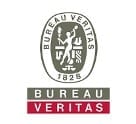Monarch makes it easy to invest in environmental and social funds comprised of projects that generate Federal and State Tax Credits
At Monarch Private Capital, our unwavering commitment is to deliver positive outcomes for our clients while recognizing the broader influence our decisions have on society and the environment. We dedicate ourselves to channeling capital into sustainable projects, maximizing returns, and driving global positive change.
Unlike traditional investment funds, Monarch’s funds offer direct investments in sector-specific projects, providing predictable returns through federal and state tax credits. These projects are carefully curated as tax-advantaged investments, allowing socially responsible investors to offset tax liabilities. This approach empowers corporations, institutional investors, and individuals to allocate investments such as in clean energy, affordable housing and historic rehabilitation. In addition, many of Monarch’s federal funds provide assessment reports that illustrate the investment’s impact from an environmental, social, and governance standpoint.
Monarch’s direct impact investment platform offers investors a desirable approach to responsible investing, making a real-world difference through widespread quantifiable community and global benefits.

Melanie Frontczak, Director, ESG & Tax Credit Investments
Comparison of traditional ESG funds to Monarch’s impact funds.
| Traditional ESG Funds | Monarch’s Impact Funds | |
|---|---|---|
| Investments | Indirect / Passive | Direct / Active |
| Source of Investor Funds | Funds earmarked for portfolio investments | Funds reserved for tax payments |
| Returns | Speculative | Predictable |
| Alignment with Investor Initiatives | Often unfocused pools of investment | Sector-specific choices |
| Framework & Scoring | Varies | Verisk Maplecroft |
| Third-Party Validation | Varies | Bureau Veritas |
Impact Investing: Making a Difference
In today’s world of pandemics, economic challenges and social crises, companies are compelled more than ever to address concerns beyond mere corporate profitability. Shareholders, employees, and local communities expect and demand that companies address local and global environmental, social, and governance concerns which are capturing the public’s attention and imagination. Monarch’s impact investment platform offers investors a very desirable alternative to make a public statement with a socially responsible investment that can make a real difference in the world.
Since 2005, Monarch Private Capital funds and tax equity investments have:
850+ Projects
Managed $6 billion worth of tax credits for investments in more than 850 projects in 41 states plus D.C.
300,000 Jobs
Generated more than 300,000 jobs and a broad economic impact of more than $35 billion
45,000 Homes
Enabled the development of 45,000 units of affordable housing
28 Million Cars
Produced energy savings equivalent to removing 28 million cars a year from America’s roads
Impact Calculator
Want to see the impact of your socially responsible investment? Select an investment type and enter your dollar amount and we’ll quantify it for you.
Our Approach to Impact Investing
Monarch Private Capital recognizes that its institutional investors are increasingly seeking to improve their profiles as socially responsible companies and further their ESG, impact, and sustainability initiatives.
Therefore, Monarch has implemented a sustainability Investment Framework across its main federal projects and funds. This third-party report is made available to each of our federal investors. This framework was developed and implemented by Verisk Maplecroft, a global risk analytics and consulting firm, for distribution to Monarch’s investors. Monarch partnered with Verisk Maplecroft due to its experience in addressing these issues in the European marketplace. This framework ensures that Monarch funds have been screened against internationally recognized and sector-specific criteria by an independent third party.
-
Impact Investment Framework
The sustainability criteria within Monarch Private Capital’s Impact Investment Framework were developed to reflect internationally recognized standards and industry best practice. The information used for the review of this criteria consists of specific data providers, information supplied by the client and/or investors as well as publicly available sources.
Each project within the fund is assessed against a set of criteria, with a focus on meeting the highest standards in the industry. The results will then be shared with all federal investors.
-
Positive Impact Metrics
Verisk Maplecroft has identified Fund specific Impact Metrics measuring the benefits the projects will generate over the course of the investment lifetime and the relevant United Nations Sustainable Development Goals it will help advance. These impact metrics, depending on the type of investment, could include but are not limited to clean energy created, CO2 emissions avoided, jobs created, and affordable homes developed.
-
Third-Party Validation
Monarch’s Framework and Impact Metric calculation for each credit sector are validated by Bureau Veritas.
-
Verisk Maplecroft
 Verisk Maplecroft is a global risk analytics and forecasting company specializing in climate and political risk data for the world’s leading institutional investors and corporations.
Verisk Maplecroft is a global risk analytics and forecasting company specializing in climate and political risk data for the world’s leading institutional investors and corporations. -
Bureau Veritas
 Global leader in assurance and independent verification services. Established in 1828, they provide companies with services required to achieve, maintain, and assess compliance with Quality, Health & Safety, Environment, and Social Accountability obligations and associated management systems and data.
Global leader in assurance and independent verification services. Established in 1828, they provide companies with services required to achieve, maintain, and assess compliance with Quality, Health & Safety, Environment, and Social Accountability obligations and associated management systems and data.
What is Impact Investing?
Impact investing is investing for positive social and environmental impact while securing desired returns. At Monarch Private Capital, we carefully choose tax equity investments that align with our investors’ values and have a measurable positive impact on the environment and society. This way, investors can create meaningful change while earning financial rewards, leaving a positive mark on the world.
Environmental
examines how a company operates in a sustainable manner and how it impacts the natural environment
Social
examines a company’s relationships, both internally (employees) and externally (clients, vendors, and communities)
Governance
examines a company’s standards for leadership and how it addresses risks and the rights of shareholders
A Brief History of Impact Investing
- Emergence in 2000s: Originating in the early 2000s, impact investing blends financial returns with positive social and environmental impact, marking a departure from traditional investment models.
- Dual Bottom-Line Focus: With a commitment to a “dual bottom-line,” impact investing seeks both financial returns and measurable social and environmental benefits, integrating these considerations into investment decisions.
- Global Mainstream Adoption: Impact investing has evolved from niche initiatives to a mainstream strategy, attracting a diverse range of investors and institutions globally who recognize the link between financial success and societal well-being.
Benefits of Impact Investing
Satisfy
achieve your sustainability goals while mitigating your tax liability
Grow
consumer loyalty, attract the best employees, and create goodwill and support for your business
Demonstrate
quantifiable, positive outcomes to local communities such as new jobs, increased property values and greater tax revenues




